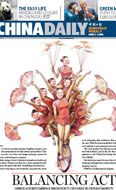Interest rate hike 'to fight inflation'
Updated: 2011-04-08 11:07
By Wang Xing, Huang Ying and Li Woke (China Daily European Weekly)
Consumer price index may reach a new high of more than 5% in March
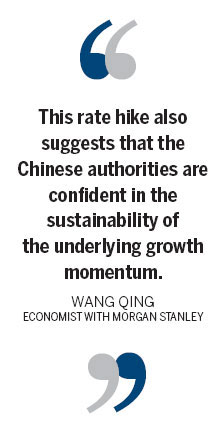
China's central bank raised interest rates on April 5, for the second time this year, to tackle inflation and asset bubbles in the world's fastest-growing major economy.
The People's Bank of China said it would raise one-year deposit and lending rates by 25 basis points, taking the deposit rate to 3.25 percent and the lending rate to 6.31 percent. The new rates took effect on April 6.
Economists say the move reflected China's increasing worries over inflation, as the turmoil in the Middle East and the earthquake and tsunami in Japan have made it more difficult for the government to curb surging prices.
The move, announced on the last day of the three-day Qingming Festival or Tomb Sweeping Festival, is the fourth time interest rates have risen since October.
"The major purpose of the interest rate hike is to fight inflation," Zhuang Jian, a senior economist with the Asian Development Bank, says.
"Research shows that the consumer price index (CPI) for last month may reach another record high."
But he says the benchmark one-year deposit rate still lags behind the CPI.
The political unrest in the Middle East and the Japan crisis increased inflationary pressure in China, forcing the central bank to act, Zhuang says.
The CPI rose 3.3 percent year-on-year in 2010, exceeding the government's 3 percent target.
Consumer prices rose 4.9 percent in February, also surpassing the government target of 4 percent.
Many analysts predict that the CPI figure will increase to more than 5 percent in March.
"Our current CPI forecast is 5.2 percent year-on-year for March," says Wang Qing , an economist with Morgan Stanley in Hong Kong, in a note to clients.
"This rate hike also suggests that the Chinese authorities are confident in the sustainability of the underlying growth momentum."
Since the beginning of last year, China has raised the bank reserve requirement, the minimum reserve banks must hold back rather than lend, nine times to soak up liquidity.
Premier Wen Jiabao said at last month's annual session of the National People's Congress that inflation is a concern for most Chinese people and that reining in prices was the government's "top priority" in 2011.
Wang Yi, an analyst from China Securities Co, says the central bank needed to react to inflationary pressures, especially as the Labor Day holiday in May could see the CPI rising.
But he believes the global economic uncertainty will see Chinese policymakers adopt a cautious approach in announcing further tightening measures.
According to a report released by the National Development and Reform Commission, price rises in food and housing were major contributors to inflation in January and February.
In the first two months of this year, food prices grew by 10.6 percent year-on-year, and housing prices recorded a year-on-year growth of 6.4 percent.
To curb surging prices, the government recently introduced a number of measures, including subsidizing low-income groups, increasing food supply and adopting temporary price controls in certain industries.
E-paper
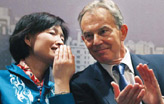
Green mission
Tony blair believes China will take a leading role to fight climate change and cut emissions.
The spring of new professions
Real modern times
F1 sponsors expect returns from Shanghai stop
Specials

Share your China stories!
Foreign readers are invited to share your China stories.
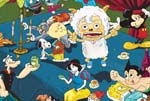
Have you any wool?
The new stars of Chinese animation are edging out old childhood icons like Mickey Mouse and Hello Kitty.
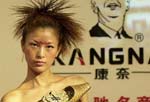
Fill dad's shoes
Daughter and son are beginning to take over the family business of making shoes.
